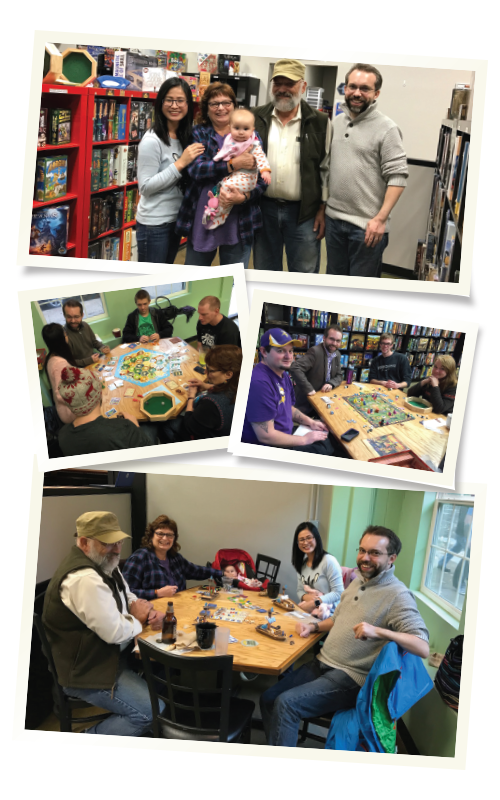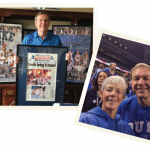On many Saturday evenings, Kaleb Michaud, PhD, saves the world from pandemics, harvests barrels of coffee beans to sell at market or helps King Brandur recover the fabled Runic DragonStones.
Dr. Michaud, an associate professor in the division of rheumatology and immunology at the University of Nebraska Medical Center (UNMC) in Omaha and also co-director of the National Data Bank for Rheumatic Diseases, is a faithful, fervent, full-fledged gamer. Forget video games. His passion is playing more than 2,000 board and card games that he says combine fun with social interaction and exercise various parts of a person’s brain.
Dr. Michaud doesn’t quite know when this hobby started. Perhaps it was after graduating from Stanford University (Palo Alto, Calif.) in 2006 with a doctorate in physics. He moved to Omaha the following year to serve on UNMC’s research and teaching staff. As a way to meet people, he joined a small group of board gamers who met every week for potluck dinner and games.
“I realized there was a whole world of games out there that I had never seen before and really enjoyed,” says Dr. Michaud, who for more than 15 years has also worked with Dr. Frederick Wolfe, the founder and director of the National Data Bank for Rheumatic Diseases and specialist in fibromyalgia and rheumatoid arthritis research. “I think that’s when my passion really grew.”
Fame, Pizza & Coffee

Top: Dr. Michaud (far right), his wife, baby and parents in the Spielbound Board Game Cafe.
Middle: Dr. Michaud (beard and glasses) acts as both teacher and student while playing games at Spielbound.
Above: Dr. Michaud (far right) plays a game with his wife and his parents, while his baby watches the action.
Over recent years, Dr. Michaud has purchased roughly 15 games every month. As he met more people, the size of the gaming group expanded to nearly 50 players. By 2012, he owned more than 1,000 different board games and hosted a monthly game night at his house for the next two years.
“Around 9 o’clock, we’d usually play a game of werewolf,” he says, explaining that it’s a party game involving trickery and deceit in which people are either villagers, defending their town, or werewolves wanting to devour the villagers. “It was our reset game that would take everyone away from their focused small group games in other rooms to see who all was here and [give us a chance to] learn something about [each other].”


